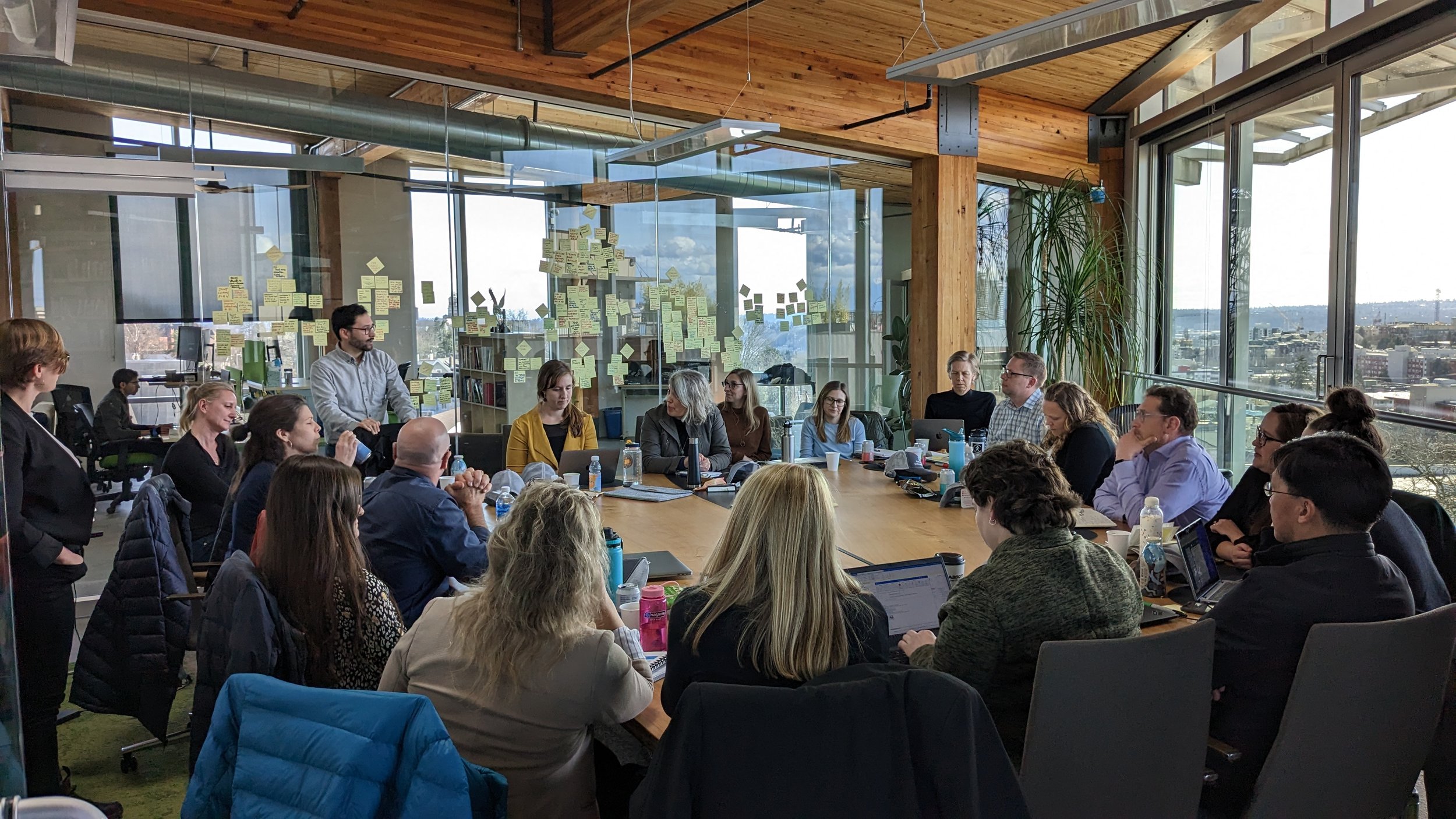Leaders across rating systems, industry membership organizations, embodied carbon subject matter expert organizations, and industry commitment leaders
ECHO:
Unprecedented collaboration
Project Life Cycle Assessment Requirements - ECHO Recommendations for Alignment (October 2024)
The ECHO Project partners are excited to announce a second publication, Project Life Cycle Assessment Requirements: ECHO Recommendations for Alignment, Version 1.0.
ECHO Reporting Schema (September 2024)
in mid-September we announced the publication of the V1.0 ECHO Schema Fields and Descriptions (Excel) and the accompanying white paper, An Introduction to the ECHO Reporting Schema.
Embodied Carbon Harmonization
and Optimization
The Challenge
AEC industry organizations are increasingly reporting built environment embodied carbon emissions. Variations in life cycle assessment (LCA) scope, methodology, terminology, and other factors result in inconsistent reporting that impedes comparison, benchmarking, or setting reduction targets.
These limitations hold the industry back from more rapid adoption of embodied carbon measurement and management practices.
The Project
Following years of collaboration amongst various individual groups, built environment industry leaders in North America have come together to create a coalition to accelerate and strategize how to rapidly reduce embodied carbon in the built environment.
As organizations currently or imminently gathering embodied carbon data from the built environment industry, creating tools and resources, and building awareness about this critical issue, we believe that we can move faster together.
Convening Organizations
Participating Organizations
ECHO is a coalition convened jointly by five leading non-profit organizations: Architecture2030, Building Transparency, the Carbon Leadership Forum, the International Living Future Institute, and the US Green Building Council. It is comprised of representatives from the American Institute of Architects, the Canada Green Building Council, the Contractors Commitment, the Climate Positive Design Challenge, American Society of Landscape Architects, the MEP 2040 Commitment, the American Society of Civil Engineers (ASCE) (Infrastructure 2050 and SEI SE 2050 Commitment), Institute for Sustainable Infrastructure (ISI), and the Urban Land Institute (ULI).
The ECHO Story
ECHO Project partner organizations first met in March of 2023 to form a coalition to strategize and accelerate the rapid reduction of embodied carbon in the built environment, by aligning the collection and reporting of data by certification programs and initiatives across the industry.
The ECHO Project announced our first milestone in September 2023 with an internal collaborative draft of the reporting framework, and a second major milestone in September 2024 with the public-facing publication of the data reporting schema to encourage all organizations (standards-setting organizations, professional commitment organizations, and others) to use the same data schema for databases and digital tools to gather and share whole building/project embodied carbon data in the same way.
The scope of reporting requirements represents areas where consensus has been reached among the ECHO partner organizations. The organizations involved are encouraged by this step towards clarity, alignment, and collaborative action to advance the rapid transformation of the built environment towards a decarbonized future.
The Carbon Leadership Forum coordinates and facilitates the ECHO Project - having taken on the role after a successful launch led by Architecture 2030. The ECHO Project organizations continue meeting to further define scopes and accounting practices for embodied carbon in the built environment, as well as to discuss future projects.
On October 25 at ASHRAE’s 2023 Decarbonization Conference for the Built Environment, ECHO partners presented their collective summary of rigorous analysis, disciplined work, and deep collaboration. Facilitated by Andrew Himes (CLF’s Director of Collective Impact), the panel included (from left to right) Lauren Alger (Infrastructure 2050 Chair | Director of Sustainable Design at STV); Katie Poss (Program Manager, Procurement and Policy at Building Transparency); Melissa Morancy (Sustainability Program Director for the Built Environment, AIA); Pamela Conrad (Climate Positive Design Executive Director | Architecture 2030 Senior Fellow); Kayleigh Houde (MEP 2040 Steering Committee, Associate Principal at Buro Happold); Jessica Bristow (Director, Living Building Challenge, ILFI); and Julie Janiski (MEP 2040 Steering Committee, Integrated Design Principal at Buro Happold).




